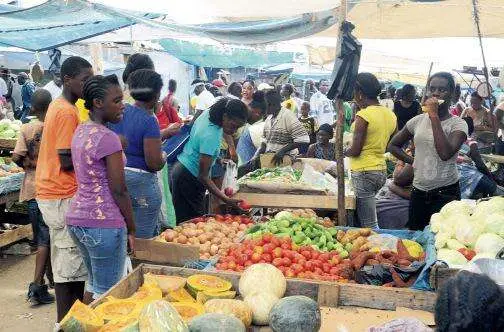
Agriculture getting data rich
Open data may be a recent global phenomenon, but Jamaicans are already beginning to unlock significant economic value from it.
It is machine-readable information, particularly government data, that is made available to the general public. In addition, open data has been touted as a means of achieving greater government transparency and as a tool to improve the delivery of public services and to empower citizens.
At the same time, open data has given rise to entrepreneurship by helping many start-ups to establish themselves, make new products and improve efficiencies.
Locally, at least one technology start-up beginning to tap into the value of open data from the agricultural sector, following the launch of Code for the Caribbean, a six-month fellowship pilot programme that is the brainchild of SlashRoots Foundation.
SlashRoots is a non-profit company comprised of mostly Jamaican volunteers both locally and in the disapora is dedicated to advancing civic technology. It also looks at how technology can be leveraged to address development issues in within the Caribbean.
“A lot of what we do is examine problems in the region and engage with people to find innovative solutions to these issues,” said Matthew McNaughton, executive director of SlashRoots.
The agricultural sector is a huge data industry, and it’s not just about reaping — farmers need information, people need market prices and financial companies need information to guide them when giving credit and insurance, McNaughton explained.
Funded by International Research Development Council (IRDC), the project was facilitated by a partnership with the Mona School of Business, Rural Agricultural Development Authority’s (RADA),which provided their database.
Agrocentral, which was developed by start-up company, Project Agro, is a digital agricultural clearinghouse that directly connects farmers and businesses. It uses an SMS to web and web to SMS model. Essentially buyers post a request for produce on www.agrocentral.co, following that, a blast SMS is sent to farmers who then gives a notification on the cost of the items.
According to Jermaine Harvey, CEO of Project Agro, his firm was one of the first start-ups to tap into HarvestAPI, which is a platform that gives persons on-demand access on information from the agriculture sector.
Project Agro built Agrocentral within 54 hours at Start-up Weekend Jamaica, which was staged by ConnectiMass last October. Startup Weekend is global movement of active and empowered entrepreneurs who are learning the basics of founding startups and launching successful ventures.
Project Agro will conduct a second beta testing phase with five businesses and 100 farmers by the end of this month, having already tested the application with 50 farmers and three businesses.
Harvey says the team will spend eight weeks on the tests and following a successful beta, he hopes to implement revenue streams that could include, a subscription fee, an escrow service where Project Agro would hold funds, as well as SMS marketing.
Meanwhile CLIP is available for use by law enforcers to help break the back of praedial larceny. It enables users to send text messages to an automated system to ascertain whether agricultural produce was purchased from farmers registered with RADA and Jamaica Agricultural Society (JAS).
A receipt number is sent via text message to a server that queries the database and immediately pulls up information on a farmer.
“The database will pull up the information to say if this receipt belongs to a registered farmer and what he is registered to produce and the police can see if the farmer is registered to grow banana and if this is a truck full of banana this is most likely to be a valid transaction,” said David Soutar, designer in residence.
The plan is to expand the pilot with RADA and the police, and do further implementation in other areas.
Though the current focus of Code for the Caribbean is agriculture, McNaughton of SlashRoots pointed out that the next area could be geo location info data, which deals with coordinates that help locate areas.
“Moving forward, we will continue to work with other government agencies with problems that need to be addressed,” he said.
























